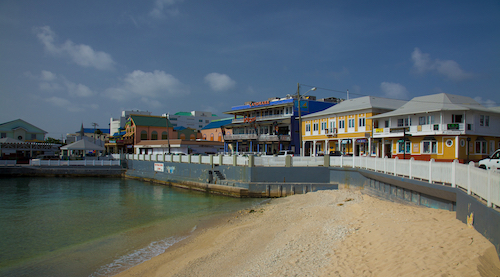The government of the Cayman Islands runs the department of health regulatory services, which monitors and regulates the local health insurance and health care industry. In addition, the public can ask for help from the department to resolve disputes that have arisen with local insurance or health care providers.The majority of health services can be accessed locally in the Cayman Islands, including primary care, maternity care and emergency treatment. There are three fully equipped hospitals on Grand Cayman and a further one on Cayman Brac. State of the art diagnostic imaging services, modern laboratories staffed by well-qualified professionals and even doulas (birth companions) to support pregnant women are available.
However, anyone requiring more complicated or specialised treatment may have to travel abroad to access appropriate services. Patients seriously injured in a car accident, for example, may be airlifted to the United States.
Medical Insurance In The Cayman Islands
The law requires all working residents of the Cayman Islands to be insured by a standard health insurance contract as a minimum. These must have been sold by approved health insurance companies. The 2013 revision of the health insurance regulations set out the minimum level of benefits to be included in any standard health insurance contract.
A worker will have insurance arranged via their employer, whilst a self-employed person will purchase their own policy. The insurance will cover the worker, plus an unemployed spouse and any dependent children who live in the Cayman Islands. It will not cover other members of the family such as elderly parents.

Anyone coming to the Cayman Islands who will not be working, whether they are a tourist or a resident, must purchase their own policy.
Some non-working residents don’t have adequate income levels to afford health insurance. In these cases, the department of children and family services undertake an evaluation of circumstances to assess the family’s needs. Applicants may be offered cover from the Cayman Islands National Insurance Company (CINICO), an independent, government-owned health insurance company. It has its own board of directors, who are appointed by the government.
CINICO also provide cover to civil servants during employment and retirement, as well as seafarers and veterans. However, their provision does not extend to people who are older than 65. The government is currently investigating whether to extend the cover via a new and specific scheme, although high policy costs may prevent this happening.
Employees And The Standard Health Insurance Scheme
Health insurance is arranged by an employer for all employees and their locally resident, dependent families. The policy must be purchased from an approved health insurance company, and come into effect on the first day of employment.
To ensure the policy is in place in time, you will be asked to complete the Health Insurance Enrolment Application (HIEA) form when you sign the contract accepting the job. It is then the employer’s responsibility to file the completed form.

Your employer should give you written information about your new healthcare insurance policy within 15 days, including the name of the insurance company, the relevant account number, and the date on which the cover started.
The employer pays the full premium to the insurance company. However, if the premium is just for the employee, half the cost will be deducted from their wages and paid to the employer. If the premium also covers a dependent spouse and/or children, the entire amount will be deducted. This means that the employer has paid a maximum of half the cost of the insurance.
You have the right to refuse your employer’s insurance policy. In that case, your employer must document your reasons and check your alternative policy. If you haven’t arranged an alternative health insurance policy, your employer must inform the health insurance commission.
If something changes in your circumstances that affects your employer’s liability and you do not inform then, and they subsequently become liable for expenses they otherwise would not have been, those expenses can be legally passed to you.
If you have two different employers, your policy will be arranged by the one for whom you work the most hours each week. In the event you work equal hours for two employers, the one you started working for first will provide your healthcare insurance cover.
What Happens When You Need Treatment?
Under the terms of your standard health insurance contract, when you are seen by a medical professional, they will ask to see your health insurance identification card.

At some point during treatment, you will be asked to pay any deductibles or charges that are beyond the scope of your insurance policy. The deductible will be clearly set out in the health insurance contract. You will normally have one set amount to pay in medical expenses each year before the insurance company will start to contribute. In addition, most health insurance companies require a percentage contribution towards the care for which they pay.
So, for example, each year you will pay the first instalment for your treatment as set out in the contract. Once you have paid that amount in the year, you will be expected to contribute, for example, 20 percent of all further costs.
Your insurance company will pay the other 80 percent, which will be billed direct to the insurance company by the medical service you accessed, so you do not need to worry about paying these sums, which can quickly add up to a significant amount.
If you cease working for your employer, all claims must have been submitted to the insurance company within 180 days of your leaving date. If you are staying in the Cayman Islands but are no longer working, you can remain on your last employer’s policy for a maximum of three months as long as you pay the full costs of the premium.
What To Do If You Are Refused Healthcare Insurance Cover
It is possible that a pre-existing condition or factors which make you a high-risk applicant mean you are refused cover by an approved healthcare insurance company. Once you have received two of these refusals, you have become an uninsurable person under the law.
At this point you can apply to CINICO. You will be expected to periodically re-apply to the approved insurance companies, in case there has been a change in your circumstances which means they will accept you.
Mental Health Conditions
Despite having around 4,000 residents living with mental health conditions, there are very few mental health residential places available in the Cayman Islands, either in hospital or prison. As a result, most people needing access to psychiatric services face the decision to remain untreated or to be taken far from friends and family to facilities in Florida and Jamaica.

However, a project is currently underway to build a cottage-based mental health facility at East End. The multi-million-dollar facility is being funded by the government, and aims to treat a range of serious mental health conditions as well as drug addiction.
The caring commitment of professionals on the Cayman Islands towards those with poor mental health can be seen in the special weekly mental health court. Defendants living with mental health conditions are supported by specialists including magistrates, prosecutors and defence lawyers, the National Drug Council, the police and probation services as well as doctors and nurses. Assessment, counselling and random drug screening are part of a process focused on keeping an individual defendant out of prison if it is safe and possible to do so.
Meanwhile, a number of services offer counselling services to anyone living in the Islands and requiring access to support and help for a wide range of situations.
Would you like to share your experience of life abroad with other readers? Answer the questions here to be featured in an interview!


